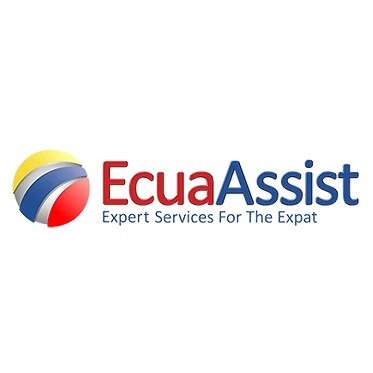Best Natural Resources Lawyers in Ecuador
Share your needs with us, get contacted by law firms.
Free. Takes 2 min.
Or refine your search by selecting a city:
List of the best lawyers in Ecuador
About Natural Resources Law in Ecuador
Ecuador is a country richly endowed with a diverse array of natural resources, from lush rainforests and unique biodiversity to significant mineral and oil deposits. The legal framework governing these resources is designed to manage their use, ensure environmental conservation, and promote sustainable development. The Ecuadorian Constitution and various specific laws regulate activities and rights related to natural resources, emphasizing environmental protection and the rights of future generations.
Why You May Need a Lawyer
There are several scenarios where individuals or businesses might require legal assistance concerning natural resources in Ecuador. These can include disputes over land rights, issues related to mining and oil extraction activities, environmental compliance, or conflicts involving indigenous peoples' rights. Legal professionals specializing in natural resources can offer guidance, resolve conflicts, and ensure activities comply with local regulations.
Local Laws Overview
Ecuador's legal landscape in the field of natural resources includes several key pieces of legislation:
- The Ecuadorian Constitution: Emphasizes the protection of the environment and recognizes the rights of nature.
- The Hydrocarbons Law: Governs the exploration, exploitation, and commercialization of oil and gas.
- The Mining Law: Regulates mining activities, detailing the conditions for exploration, operations, and concessions.
- Environmental Management Law: Sets the framework for environmental protection and the sustainable use of natural resources.
- Laws on Indigenous Peoples: Recognize and protect the rights of indigenous communities, particularly concerning land and resource use.
Frequently Asked Questions
How are natural resources regulated in Ecuador?
Natural resources in Ecuador are regulated by the country's Constitution, specific laws like the Hydrocarbons Law and Mining Law, and a range of environmental regulations.
Do indigenous communities have rights over natural resources?
Yes, indigenous communities in Ecuador have recognized rights over their ancestral lands and resources, as well as a say in development projects affecting them.
What is Ecuador's approach to environmental conservation?
Ecuador places significant emphasis on environmental conservation, with strong legal provisions protecting biodiversity and the rights of nature enshrined in its Constitution.
What permits are required for mining activities?
Mining activities require exploration and operation permits, environmental licenses, and compliance with several other legal and regulatory requirements.
Can foreign companies participate in Ecuador's natural resources sector?
Yes, foreign companies can invest in Ecuador's natural resources, but they must adhere to local laws and regulations, including partnership requirements and environmental standards.
What are the penalties for violating environmental laws?
Penalties can include fines, suspension of operations, and legal action along with requirements to restore any environmental damage caused.
Can individuals or communities contest resource extraction activities?
Yes, individuals and communities can contest activities through legal action or by engaging in public consultation processes as mandated by law.
What role does the government play in resource management?
The government plays a central role, overseeing regulation, licensing, and sustainable management of the country's natural resources.
How is conflict resolution handled in resource disputes?
Conflicts can be resolved through legal channels, mediation, or arbitration, often with a focus on community involvement and sustainable outcomes.
Are there any successful cases of sustainable resource projects in Ecuador?
Yes, several projects successfully balance economic development with environmental sustainability and community involvement, often showcasing best practices in resource management.
Additional Resources
For further assistance, consider reaching out to the following resources:
- Ministry of Environment and Water: Oversees environmental protection and management.
- Ministry of Energy and Non-Renewable Natural Resources: Regulates energy, mining, and hydrocarbons sectors.
- Ombudsman Office (Defensoría del Pueblo): Advocates for citizens' rights, including environmental rights.
- Local Non-Governmental Organizations (NGOs): Offer support and advocacy in environmental and indigenous rights issues.
Next Steps
If you need legal assistance in the field of natural resources in Ecuador, consider taking the following steps:
- Research: Start by gathering information on your specific issue and the relevant laws and regulations.
- Consult a Professional: Seek out a lawyer who specializes in natural resources law to discuss your situation and explore your legal options.
- Engage with Authorities: Contact relevant governmental bodies to obtain necessary permits, information, or assistance.
- Consider Mediation: For disputes, consider mediation as a way to achieve a resolution that is satisfactory to all parties involved.
- Stay Informed: Keep abreast of changes in regulations and legal precedents affecting natural resources in Ecuador.
Lawzana helps you find the best lawyers and law firms in Ecuador through a curated and pre-screened list of qualified legal professionals. Our platform offers rankings and detailed profiles of attorneys and law firms, allowing you to compare based on practice areas, including Natural Resources, experience, and client feedback.
Each profile includes a description of the firm's areas of practice, client reviews, team members and partners, year of establishment, spoken languages, office locations, contact information, social media presence, and any published articles or resources. Most firms on our platform speak English and are experienced in both local and international legal matters.
Get a quote from top-rated law firms in Ecuador — quickly, securely, and without unnecessary hassle.
Disclaimer:
The information provided on this page is for general informational purposes only and does not constitute legal advice. While we strive to ensure the accuracy and relevance of the content, legal information may change over time, and interpretations of the law can vary. You should always consult with a qualified legal professional for advice specific to your situation.
We disclaim all liability for actions taken or not taken based on the content of this page. If you believe any information is incorrect or outdated, please contact us, and we will review and update it where appropriate.
Browse natural resources law firms by city in Ecuador
Refine your search by selecting a city.














